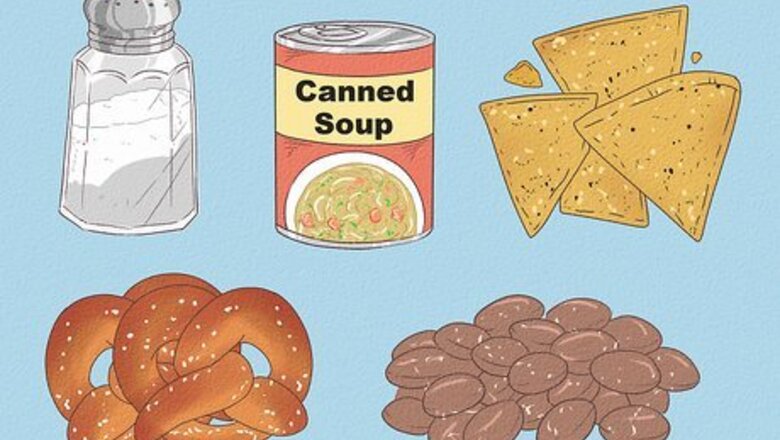
views
- Switch to the DASH diet, which is designed to help lower blood pressure and manage your symptoms.
- Exercise regularly, minimize your alcohol consumption, and manage your stress.
- Consult your doctor and ask about medications to help you lower your overall blood pressure.
The DASH Diet
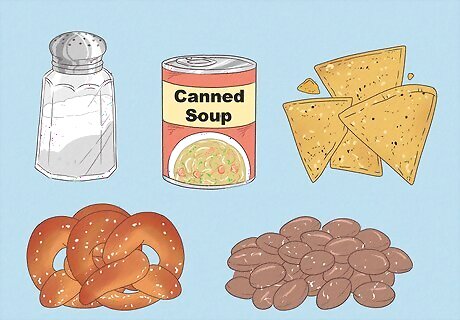
Lower your sodium intake by consuming less salt. Many people eat as much as 3,500 mg of sodium per day. The DASH diet, which is short for Dietary Approaches to Stop Hypertension, recommends no more than 2,300 mg of sodium per day. Sodium is in salt, so the best way to reduce your sodium intake is to eat less salt when you cook or order out. Season your food without table salt. Do this by not salting meats and not adding salt to the water when you cook rice or pasta. Avoid salty snacks and processed food like chips, pretzels, and salted nuts. They often have large amounts of salt added to them. If you do purchase prepared foods, look for low-sodium versions. Check the contents of canned food, premixed seasonings, bouillon cubes, canned soups, jerkies, and sports drinks to see if they have salt added to them.
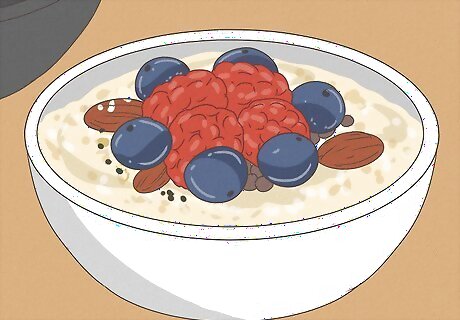
Consume 6-8 servings of whole grains every day. Whole grains are better than processed white rice or processed flour because they have more fiber and nutrients. A serving is a slice of wheat bread, 1 ounce (28 g) of dry cereal, or a ½ cup (19 g) of pasta. Buy whole wheat flour and pasta instead of white. Many whole wheat bread products will say on the packaging that they are whole wheat. Eat oatmeal or make brown rice if you want a great source of nutrients and fiber.
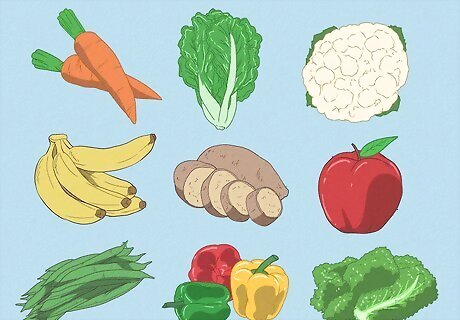
Load up on fruits and vegetables as snacks and main ingredients. Eat 4-5 servings of fruit and 4-5 servings of vegetables each day. A serving is ½ cup (48 g) of leafy vegetables or a ½ cup (85 g) of cooked vegetables. These are great sources of potassium and magnesium which help to lower your blood pressure. Eat a side salad with every meal. Keep them interesting by varying what you put in them. Add a sweet element by throwing in some apple or orange slices. Go easy on the salad dressings, though—they have a lot of salt and fatty oils. Incorporate vegetables as a side dish. Instead of cooking pasta, try putting the main dish over a sweet potato or next to a side of squash. Snack on fruits and vegetables between meals. Take an apple, banana, carrot, cucumber or green pepper with you to work or school. Buy frozen vegetables. If you are worried about having fresh produce go bad before you eat it, frozen vegetables are an excellent choice.
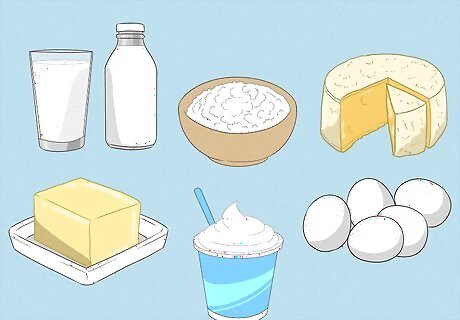
Consume 2-3 low-fat dairy products, like yogurt, every day. Dairy is an important source of calcium and a good way to maintain vitamin D levels. However, it is important to choose dairy products carefully to avoid consuming too much fat and salt. 1 cup is a serving, and you should aim for 2-3 servings per day. Cheese is often high in salt, so don’t overdo it. When you eat yogurt and drink milk, go for the low-fat or skim varieties. Both are great with whole-grain cereals for breakfast.
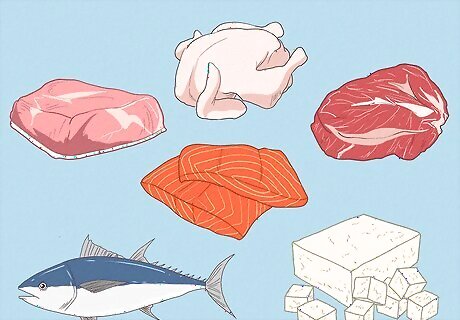
Stick with lean meat, poultry and fish. Meats and fish are excellent sources of protein, vitamins, iron and zinc, but some variations can be high in fat and cholesterol. Since fat and cholesterol can clog your arteries, it’s best to not overindulge. Eat no more than 6 servings per day, with 1 serving being an ounce of meat (30 g) or an egg. Avoid fatty red meats, like ground beef, ribeye or short rib. When you cook, don’t fry your meats. Healthier alternatives include baking, grilling, or roasting. Salmon, herring and tuna are great sources of omega-3 fatty acids. Eating these fish can help control your cholesterol, and they are also high in protein. For vegetarians, eating tofu is an excellent meat substitute because it is high in protein.
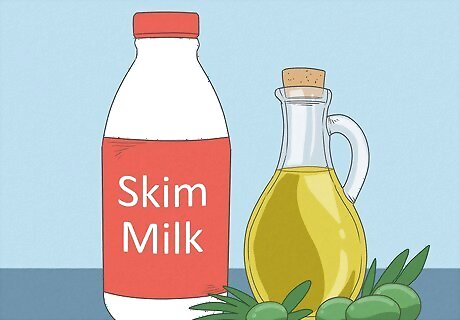
Cut back on your fat consumption. Fat increases your risk of heart disease. To protect your heart, restrict your fat intake to a maximum of 3 servings per day. A tablespoon (14 g) of butter is a serving. Don’t spread butter or mayonnaise on bread. Instead, try using olive oil or ghee. Some fats are better than others. Unsaturated natural fats, which are found in things like olives, corn, and fish, are much better than synthetic, saturated, or trans fats. Reduce the amount of oil you cook with. Use skim milk instead of whole milk and avoid heavy cream, lard, solid shortenings, palm and coconut oils.
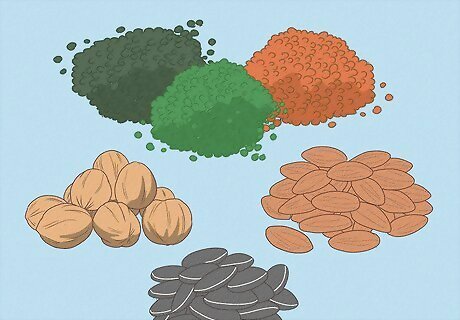
Supplement your diet with nuts, seeds, and legumes. These ingredients are relatively high in fat, but they also have magnesium, potassium, fiber, and protein. So, the DASH diet calls for 4-5 servings a week. A serving counts as 1/3 of a cup (50 g) of nuts. Nuts and seeds make an excellent addition to salads. They’re also just a great snack on their own.
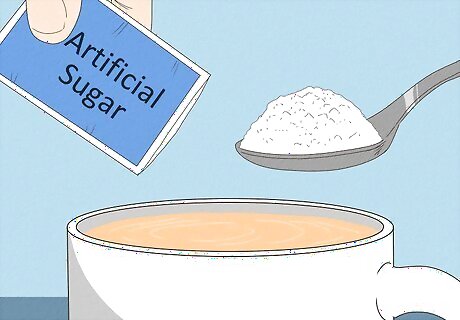
Restrict your sugar consumption, especially if it’s processed. Processed sugars add calories to your diet without providing any nutrients. Reduce your consumption of sweets to, at most, 5 times per week. A serving counts as 1 tablespoon (12 g) of sugar or jelly. Artificial sweeteners are always going to be healthier than using sugar, but use them sparingly. Some sugars are worse than others. Artificial and added sugars are a lot worse for you than the natural sugars (like fructose) found in fruit and milk.
Lifestyle Changes
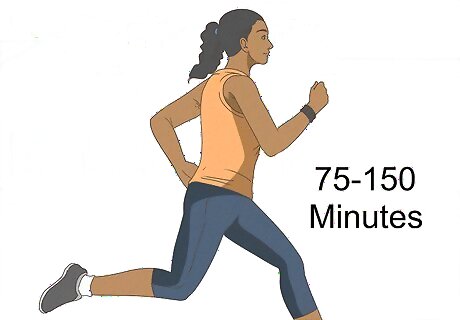
Exercise for roughly 75-150 minutes a week to stay healthy. Being physically active can lower your blood pressure by helping to control your weight and manage stress. For the best results try to do 75–150 minutes of physical activity per week. You can choose whatever kind of physical activity you’d like as exercise. Fun options include walking, running, dancing, biking, swimming, or playing sports. Do strength training, such as weight lifting, twice a week to maintain bone density and build muscle.
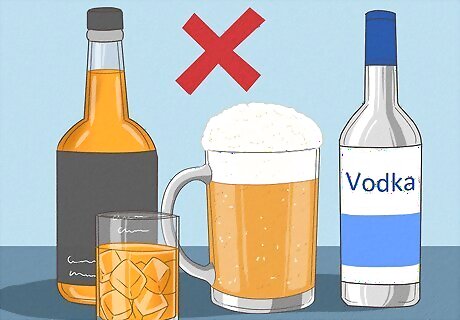
Reduce your alcohol intake. Consuming too much alcohol is bad for your heart, and alcoholic beverages are high in calories that contribute to obesity. You can lower your blood pressure by quitting drinking or drinking only in moderation (i.e. 1 drink a day, or drinking only periodically). Men over 65 and women should limit themselves to, at most, one drink per day. Men under 65 should have no more than two drinks per day. A can of beer, a glass of wine, or a shot of hard liquor all qualify as a drink.
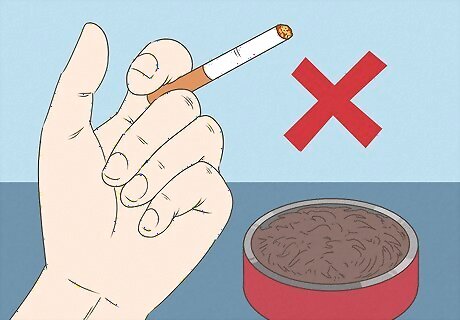
Quit smoking or chewing tobacco if you’re a tobacco user. Tobacco can harden your arteries and make them narrow, which will increase your blood pressure. Secondhand smoke can also cause these effects. If you need help to quit smoking, you might: Talk to your doctor or see a counselor. Join a support group or call a quitting hotline. Ask your doctor about medication or nicotine replacement therapy.
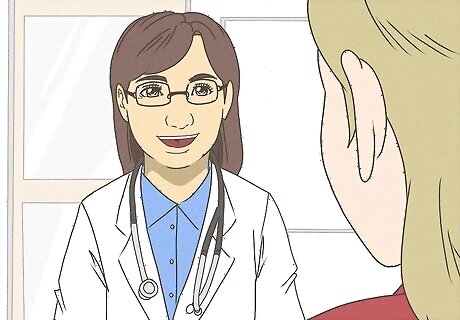
Evaluate your medications and avoid illicit drugs. If you think your medications might be causing high blood pressure, consult your doctor. Your doctor may be able to help you find an alternative that is better for your blood pressure. Don’t stop taking your medications without clearing it with your doctor first. Illicit drugs like cocaine, crystal methamphetamine, and speed can increase your blood pressure to a dangerous degree. Some birth control pills can raise your blood pressure. Many decongestants and cold medications can put stress on your heart if you overuse them. Over-the-counter nonsteroidal anti-inflammatory drugs (like ibuprofen) aren’t good for blood pressure over time.
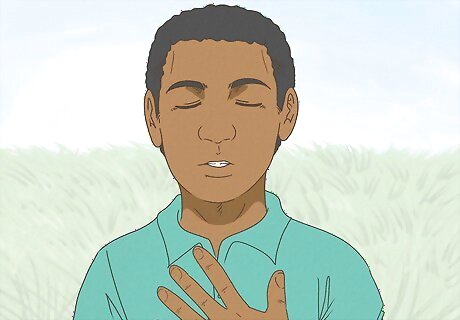
Reduce your overall stress. Constant stress can put a ton of unnecessary strain on your heart and artificially raise your blood pressure—especially if your body experiences the “fight or flight” response frequently. While some stress is an unavoidable part of life, use relaxation techniques to help you deal with it. Try: Yoga. Meditation. Music therapy. Deep breathing exercises. Positive visualization. Progressive muscle relaxation.
Seeing a Doctor
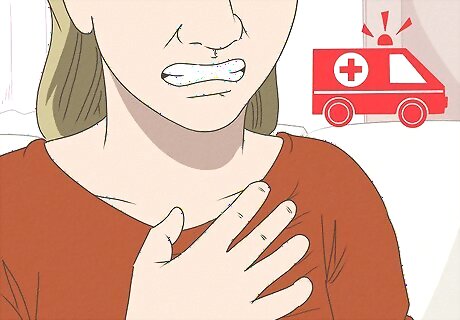
Call emergency responders for a heart attack or stroke. Heart attacks and strokes occur quickly, and you’re at an increased risk if you have high blood pressure. Every minute counts, so call emergency services at the first onset of symptoms. Signs of a heart attack include: pressure or pain the chest, pain in one or both arms, neck, back, jaw, or abdomen, shortness of breath, sweating, nausea, or dizziness. Symptoms of a stroke include: drooping face, difficulty speaking or understanding speech, numbness or weakness in an arm, leg, or the face, confusion, vision problems in one or both eyes, dizziness, loss of coordination, or headache.
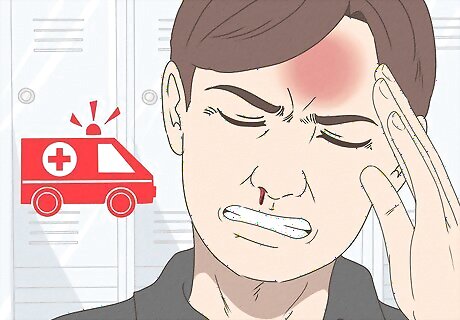
Go to the emergency room if you have a hypertensive crisis. If you have high blood pressure, monitor it closely and get your blood pressure checked every year at your annual checkup. If your blood pressure gets too high, you may experience a hypertensive crisis, which requires emergency medical care. Go to the ER if you have: Headaches that don’t go away. Blurred vision or seeing double. Frequent nosebleeds. Shortness of breath. Chest pain, nausea, or vomiting.
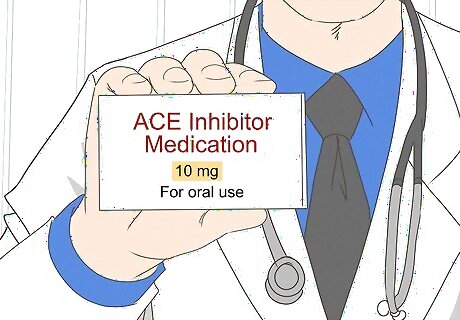
Consult your doctor if you aren’t taking blood pressure medication. There are a lot of effective medications out there to help you manage blood pressure, so see your doctor if you aren’t taking anything, get a consult. It is imperative to take the medications following your doctor’s instructions. If you skip doses or don’t take them correctly, they may not be effective. Your doctor may prescribe: ACE inhibitors. ACE stands for Angiotensin-converting enzyme. These medications relax your blood vessels. It may give you a cough as a side effect. Calcium channel blockers. These medications widen your arteries. Ask your doctor about side effects and interactions. Diuretics. These medications reduce your salt levels by helping you urinate more often. Beta-blockers. These medications slow your heartbeat and make it less forceful. This is generally a last resort for when other medications and lifestyle changes have not been sufficient.
















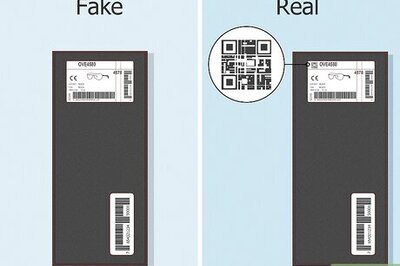
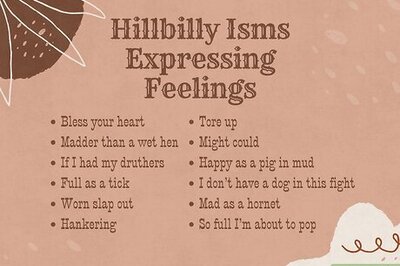
Comments
0 comment